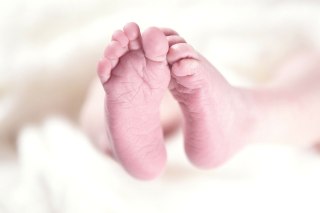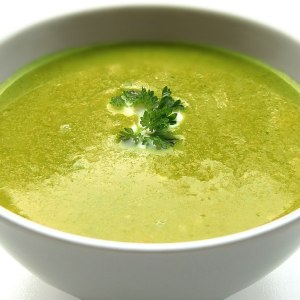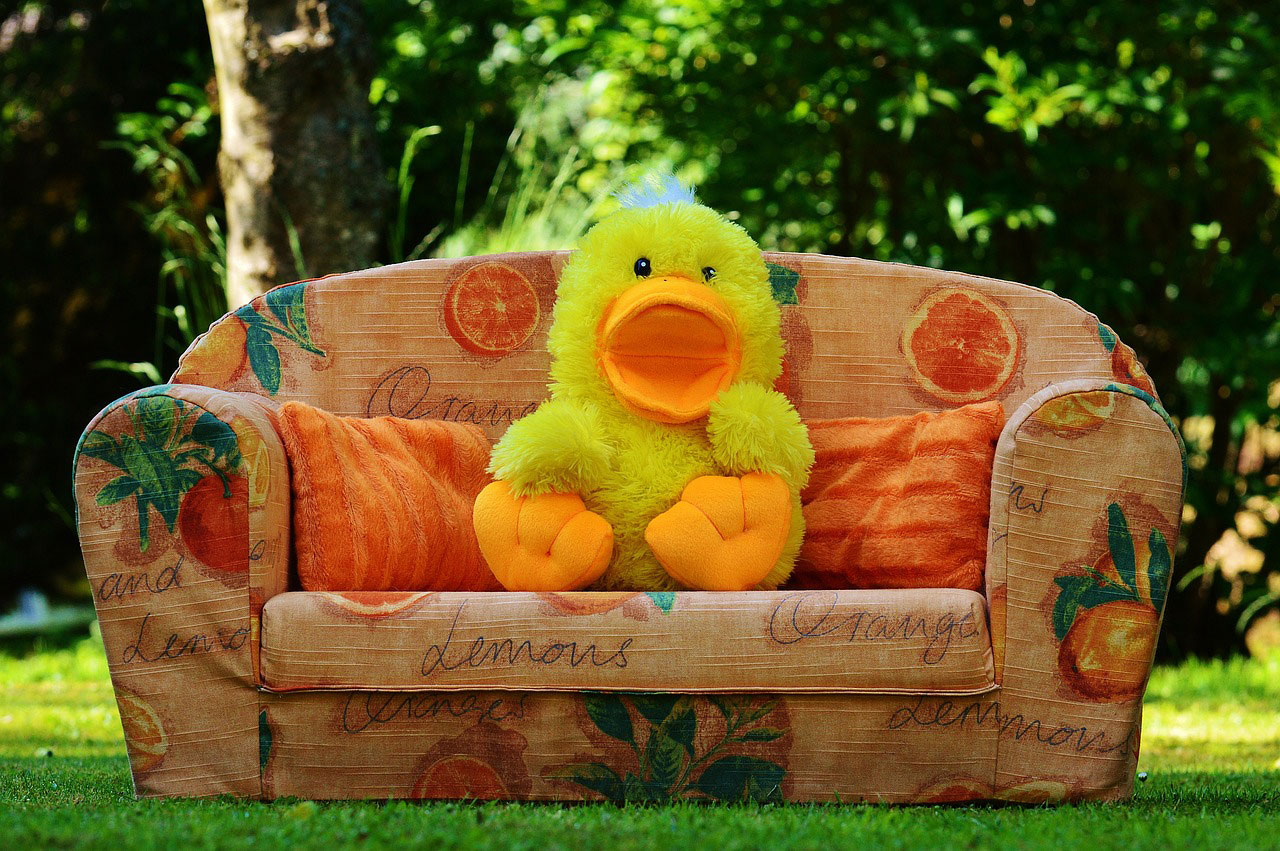If you’re unsure in parts or are baffled by what Postpartum Psychosis (PP) is or isn’t, you’re certainly not alone. There are so many misconceptions & conflicting messages about it online, offline, in the media, in archives, in communities, in families…just everywhere!
This severe postnatal mental illness, which strikes at the worst possible time, is still shrouded by fear & stigma. I find this astonishing for an illness first recorded in the 16th Century & has probably existed since the beginning of time. If you’ve never heard of Postpartum Psychosis or are a clinician & know your PP stuff (good on you!), here are a few important ‘patient expert’ nuggets in easy chunks to nibble on & digest…
- It can happen to any woman after childbirth, completely out of the blue to our mothers, friends, sisters, aunts & neighbours. Even if you think they’re not “that type” & mental illness is far from their radar, Postpartum Psychosis doesn’t discriminate in any way. Half of women with Postpartum Psychosis have no previous mental health issues. I’m one of the many, everyday women who’d never heard the words “Postpartum Psychosis” before being struck with it after giving birth.
- It’s not our fault. It doesn’t happen because of the sort of people we are, our childhoods, backgrounds, stress, financial worries or due to anything we did or didn’t do. It’s not yet known what causes it but genetic factors are known to be important & changes in hormone levels & disrupted sleep patterns could also be involved.
- It’s not Postnatal Depression, it’s a separate illness with different symptoms & its own issues & recovery needs. For me it was more the opposite, with its sudden & very severe ‘high’ mood, with mania, losing touch with reality at times, strange beliefs, extreme anxiety & severe confusion. Like a Bipolar Disorder episode, this ‘high’ is often followed by a ‘low’, a deep & lengthy depression. Postpartum Psychosis usually happens in the first days or weeks after giving birth & symptoms can change very quickly from hour to hour & from one day to the next.
- Postpartum Psychosis isn’t rare, it’s known little & hidden lots but it’s not rare. It
happens in 1-2 per 1000 births (around 1380 per year in the UK) – to put it in perspective, it’s around twice as common as Downs Syndrome. It’s sudden, severe & seen as a psychiatric emergency but it’s temporary, treatable & has very positive outcomes. Yes, for a while it’s devastating, confusing, frightening & heart-breaking – but it’s not permanent & we do get better. - All pregnant women should be aware of the early symptoms. Their partners & their families should be watchful too. Not informing women of these early symptoms ‘because you don’t want to scare them’ is nonsensical & a dangerous form of stigma. Look for the ‘highs’ after childbirth & not just the ‘lows’.
- The right medication can be lifesavers, without it Postpartum Psychosis is mighty & dangerous. If we’re ‘high’ or manic after childbirth we’re likely to need antipsychotics (perhaps among other things) & not just anti-depressants alone. It might take some adjusting & have some awful side effects for a time but it’s a necessity. Even if we prefer natural remedies or don’t usually take anything other than paracetamol, this medication is a must for a while. My experience delaying medication in the hope it got better on its own, didn’t work, my symptoms deepened & my recovery was delayed.
- The media sensationalises the heart-breaking tragedies & shockingly depicts us as monsters. This is where women didn’t get the correct treatment they needed (usually after considerable pleas!), & thankfully happens rarely. We are not ‘mad & bad’, even during the midst of our psychosis the care & protection of our new-born babies is at the forefront of our minds. With the right treatment at the right time, we recover to our normal selves & go on to make some of the most caring, loving mums I’ve seen.
- Recovery is a long, hard struggle with a continually moving endpoint. We feel lonely, alienated & isolated. We need time, care & a great deal of patience but we do get better. Just because we feel numb, emotionless & apathetic doesn’t mean we’re not fighting the biggest battle of our lives every single day. It might not feel two way, but we need the love &
 support from partners, friends & family while we rebuild ourselves from scratch at the same time as learning to be a mum. Hang in there too & don’t give up on us – we’ll get there & will emerge stronger, happier & thankful.
support from partners, friends & family while we rebuild ourselves from scratch at the same time as learning to be a mum. Hang in there too & don’t give up on us – we’ll get there & will emerge stronger, happier & thankful. - Having another child is a very real option. Women with Bipolar Disorder or a previous Postpartum Psychosis are at high risk of an episode after childbirth. We need to prepare & seek specialist perinatal advice before or during pregnancy. It’s a very difficult decision fraught with concerns & worries – we’ll be scared & will have a lot of thinking & talking to do. With preparation & the correct advice it’s possible to have more babies without being ill again & if we were ill, the experience would be very different from the first time. Getting support from others who’ve made the same tough decisions & hearing their stories really helps. There’s no ‘right’ or ‘wrong’ decision so please respectfully accept our decision without judgement, either way.
- There are many poignant reminders of the trauma, the missed moments & the lost early years. Birthdays, Christmas & notable dates can be can bring painful memories & we may need a little extra time & understanding at these times. At various times after Postpartum Psychosis issues will crop up where we have questions & need support from others with personal experience. Specific PP peer support plays a significant part in recovery & ongoing support, sometimes even decades after our PP episodes. We might be worried about being ill again & constantly monitoring our moods. We might be worried about getting too high or too low, but just because we’re happy doesn’t mean the start of a manic episode, we have normal up & down moods just like you.
- Listen without judgement, blame or shame, we’ve been through hell & back & have so much to piece together, understand & accept. There is lots to be learned from our experiences, our routes into care & our treatment & improvements must be made; we all have stories to tell. Please don’t let this illness continue being hidden & damaging to generations. Help future new mums, their babies, their families & generations to come, by simply talking openly about it.
w: PPSoup.com e: PPeasoup@gmail.com
#PPTalk #endPPmyths #PPin5words


October 10, 2015 at 9:25 pm
Thank you for sharing. As one who experienced postpartum psychosis and now advocates in area of maternal mental health, increasing awareness is so important. My story was published in the book A Mother’s Climb Out of Darkness if you are interested in learning more about it.
LikeLike
November 8, 2015 at 4:58 pm
This is an outstanding post and one that should be shared by all the postpartum advocacy groups around the world! I’ll do my small part to help get the word out – you know I will! 😉 Thanks for writing this with the intention to truly help other moms with your own experiences and by sharing such a wealth of resources. You’re amazing!!!
LikeLiked by 1 person
November 2, 2016 at 8:12 pm
Great Post. For me, I’ve found number 11 the hardest, I have only actually told a couple of people I was diagnosed with PP, EVERYONE knows I was hospitalised but I think they all think I have post natal depression. I didn’t really explain it to anyone for fear they’d think “oh ok, she went loony coz it was hard” but thats because I haven’t dealt with it properly yet it was only 5 months ago. This blog and health unlocked forum have made me feel probably 100 times better about being open about this instead of just letting everyone presume it was PPD.
LikeLiked by 1 person
November 7, 2016 at 8:11 am
It’s very hard to be open about what we’ve been/are going through, I think it has to be the right time for us & to the right people. My experience was similar to yours with everyone thinking it was PND, at the start I just let them think that – it was just far easier to explain & them to understand. I think things are changing though & eventually they’ll be a time when we can be as open as we want & need to be without any fear. All the best on your own journey x
LikeLike